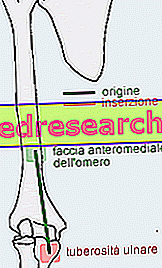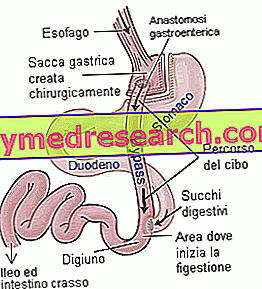Definition
Nasal polyposis refers to a benign tumor that grows along the mucosa of the nose or at the level of the paranasal sinuses; most often, the polyps originate in both nostrils, more or less significantly hindering the respiratory flow. Nasal polyposis is a possible risk factor for sinusitis.
Causes
Certainly, asthma and allergic rhinitis are possible triggers for nasal polyposis; however, sinusitis, besides being a potential consequence of polyposis, is also a hypothetical causal agent. More generally, nasal polyposis is the result of chronic inflammatory insults against the mucous membrane of the nose; sometimes, nasal polyps grow without a clear and ascertained reason.
- Additional possible risk factors: cystic fibrosis, excessive intake of aspirin and salicylates.
Symptoms
Respiratory difficulty and nasal congestion are the main symptoms associated with nasal polyposis; in addition to these, we note: alteration of the perception of food taste (dysgeusia), facial pain, headache, loss of smell, ocular itching, rhinorrhea, watery discharge from the nose, noisy breathing sounds (especially during sleep).
Information on Nasal Polyps - Drugs for the Treatment of Nasal Polyps is not intended to replace the direct relationship between health professional and patient. Always consult your doctor and / or specialist before taking Nasal Polyps - Drugs for the Treatment of Nasal Polyps.
drugs
Considering that nasal polyposis is a rather common benign disease, drug therapy is generally symptomatic, therefore aimed exclusively at reducing / healing symptoms.
Surgical excision of nasal polyps is another possible solution to cure the disease definitively; however, it is important to remember that the patient is subjected to surgery only when the size of the nasal polyps is such as to significantly obstruct the upper respiratory tract.
When the polyps are small and do not markedly obstruct the respiratory flow, it is possible to treat the pathological condition with simple nasal sprays containing corticosteroids, possibly associated with cortisone tablets to be taken systemically. The treatment just described is useful not only to treat nasal polyps, but also and above all to prevent their eventual reappearance.
- Fluticasone (eg Avamys, Alisade, Fluspiral, Flixonase, Nasofan) the drug (steroid spray) is widely used in therapy for the treatment of allergic rhinitis (a disease closely related to nasal polyposis), and for the treatment and prevention of nasal polyps . Start the therapy with 200 mcg of medicine per day (2 sprays per nostril once a day, or 1 spray per nostril twice a day). When symptoms improve, it is possible to reduce the dosage to 100 mcg a day. Do not exceed 200 mcg per day. When nasal polyposis is related to asthma, the dosage of intake changes: patients treated previously exclusively with bronchodilator drugs (for the treatment of asthma) can take the drug at a dose of 100 mcg on the first day, gradually increasing the dose from day to day, up to a maximum of 500 mcg twice a day. Patients previously treated with oral corticosteroids can take fluticasone at a dose of 880 mcg per day. Consult your doctor.
- Beclometasone (eg Rinoclenil, nasal Becotide) the drug belongs to the class of steroids; should be taken by aerosol or as a simple nasal spray. In the first case, inhalation is recommended (42 mcg) in each nostril 2-4 times a day (do not exceed 168-336 mcg per day). Maintenance posology for the prevention of nasal polyposis: 1 inhalation in the nostrils 3 times a day (252 mcg per day). The spray formulations are available at 0.042% (1-2 sprays in the nostril / the sick, twice a day) or at 0.084% (1-2 sprays in the sick nostril, once a day).
- Mometasone (eg. Nasonex, Rinelon) apply 2 sprays into the nostril affected by the pathology, twice a day. Only one application per day is recommended for less severe forms of nasal polyposis.



